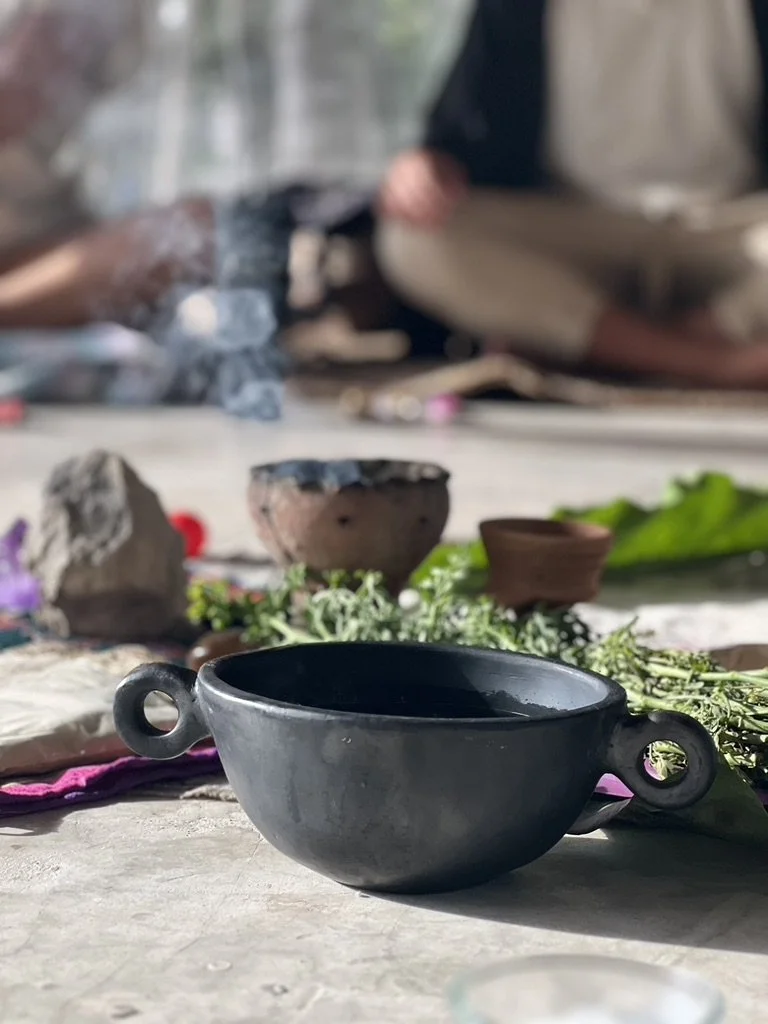Ayahuasca: An Overview of the Sacred Plant Medicine
Origins and Traditional Use
Ayahuasca is a sacred plant medicine that has been used for centuries by Indigenous peoples of the Amazon Basin for healing, spiritual insight, and deep connection to the divine. Traditionally brewed as a sacred tea, Ayahuasca is made by combining the Banisteriopsis caapi vine (which contains monoamine oxidase inhibitors or MAOIs) with Psychotria viridis (a plant that contains N,N-Dimethyltryptamine, or DMT). This powerful combination allows for an extended visionary experience, facilitating deep healing, self-exploration, and connection with spirit.
Over time, the use of Ayahuasca has expanded beyond the Amazon, with many spiritual seekers, healers, and facilitators worldwide recognizing its profound therapeutic and consciousness-expanding properties. Today, Ayahuasca is utilized in traditional ceremonial settings, spiritual retreats, and therapeutic applications, guided by experienced facilitators or shamans.
Effects and Experience
The Ayahuasca experience varies from person to person and is deeply introspective and transformative. Common effects include:
Intense Visual and Sensory Experiences – Participants often report vivid visions, spiritual encounters, or symbolic imagery.
Emotional Release and Healing – Many experience profound emotional processing, helping to release trauma, grief, or suppressed emotions.
Deep Self-Reflection and Insight – Ayahuasca is known as a "teacher plant," often revealing guidance, truths, and clarity about life, relationships, and purpose.
Physical Cleansing (La Purga) – Nausea, vomiting, and even diarrhea are common during a ceremony, seen as part of Ayahuasca’s cleansing process.
Expanded Consciousness and Spiritual Connection – Many report feelings of oneness with nature, spirit, or higher dimensions, leading to profound transformation and healing.
The effects can last between 4-8 hours, and integration after the experience is considered essential for processing and applying insights into daily life.
How Ayahuasca is Administered
Ayahuasca is traditionally consumed as a tea in a ceremonial setting, guided by an experienced shaman, facilitator, or curandero who ensures a safe and supportive environment. These ceremonies typically include prayers, sacred songs (icaros), and energetic cleansing rituals to enhance healing and protection.
Preparation for an Ayahuasca ceremony often involves a dietary and energetic cleanse known as the “dieta,” which may include avoiding certain foods (like salt, sugar, alcohol, caffeine, and processed foods) and abstaining from sexual activity or other energetic influences.
Contraindications and Safety Considerations
While Ayahuasca has the potential for deep healing, it is not suitable for everyone. Certain medical and psychological conditions, medications, and personal health factors can pose serious risks. Some contraindications include:
Medications that affect serotonin levels – Ayahuasca interacts with antidepressants (SSRIs, MAOIs), antipsychotics, and other psychoactive medications, potentially leading to dangerous conditions like serotonin syndrome.
Heart Conditions and High Blood Pressure – Ayahuasca can elevate heart rate and blood pressure, posing risks for those with cardiovascular issues.
History of Severe Mental Health Disorders – Those with schizophrenia, psychosis, or bipolar disorder may be at risk for worsening symptoms.
Pregnancy and Certain Medical Conditions – Pregnant individuals or those with severe health conditions should avoid Ayahuasca due to potential risks to health and well-being.
It is crucial to disclose any medical history, medications, or concerns before participating in a ceremony and to seek guidance from experienced facilitators or medical professionals when considering Ayahuasca.
Conclusion
Ayahuasca is a powerful and sacred plant medicine with the potential to bring deep healing, spiritual awakening, and transformation when used with reverence, respect, and proper guidance. However, it is not to be taken lightly, and preparation, safety, and integration are essential for a safe and meaningful experience. When approached with intention, respect, and a supportive environment, Ayahuasca can serve as a profound teacher and healer on the journey of self-discovery and spiritual evolution.

